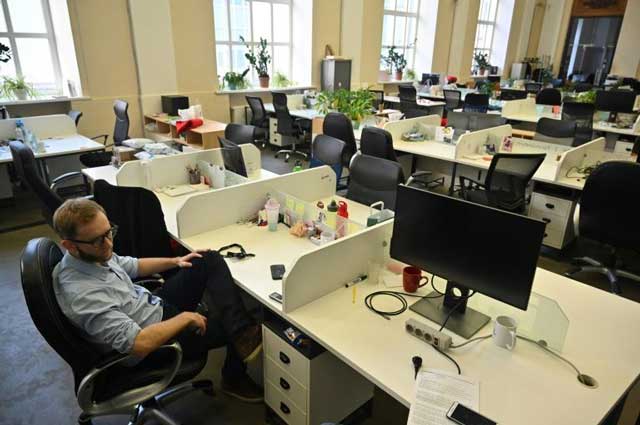
Kiev, Ukraine | AFP | The headquarters of Dmytro Voloshyn’s startup in the historic centre of Kiev is eerily quiet. But online, his business is busier than ever.
Despite a crippling global economic crisis brought about by the coronavirus pandemic, Voloshyn believes a worldwide lockdown to slow infections was just what his startup needed to thrive.
“We are in a favourable position,” the co-founder and chief technical officer of the Preply language learning platform told AFP.
“People are at home because of the virus, so they can spend more time on online learning.”
When Voloshyn, 32, and his two business partners founded their company in 2013, all of its tutors worked offline and lived in Ukraine.
Since, the platform which pairs language teachers with students, has moved online only with students and teachers across the globe.
Helped by anti-virus measures restricting millions to their homes, Preply now has a network of 10,000 tutors in 190 countries and “tens of thousands of students”, Voloshyn says.
– Full capacity –
The quiet in Preply’s Kiev headquarters is deceptive. Since Ukraine ordered a lockdown in March to slow the pandemic, Preply’s 125 staff have been working at full capacity from home.
Voloshyn says the company is even scrambling to hire 40 employees across its offices in Kiev and Barcelona.
The need for extra hands stems from the large number of people across the world honing their foreign language skills in self-isolation, says Voloshyn.
He points to a global trend in which people “do nothing” in the first week of lockdown.
But during the second week “we see a double or even triple growth in number of users.”
This surge saw revenues increase some 20 percent in March, he added.
Hannah Ilina, 25, teaches Chinese and English on several platforms including Preply, from her home in Kiev’s suburbs. She says now is the “perfect time” to be a tutor online.
“I used to have free days or between one and two lessons per day. Now it’s five or six per day, seven days a week.”
One of her students, a Canadian, increased his weekly lessons from three to seven, she said.
But not all Ukrainian startups have enjoyed the same success under lockdown.
In Kiev alone, between 200 and 300 IT specialists have recently lost their jobs, says Voloshyn.
Ex-Soviet Ukraine with a population of 40 million is one of the poorest countries in Europe. The economic fallout from the pandemic threatens to make matters worse.
– ‘Growth will fade’ –
Ukraine’s GDP is set to shrink by 5-10 percent this year, says Hlib Vyshlinsky, director of the Centre for Economic Strategy in Kiev.
Aviation and tourism have already felt the pandemic’s impact, he told AFP.
Vyshlinsky warns that Ukraine’s tech sector, which employs 200,000 sought-after developers generating billions of dollars from local and international companies, will not be insulated from the shock.
Voloshyn acknowledged his company was riding a short term wave of success and predicts a drop in growth when countries begin easing lockdown restrictions.
“People will go out and want to have more offline activities,” he said.
Yet he expects the pandemic will contribute to company’s long-term growth.
“What quarantine will change is the perception of online learning. People will become much more open to online products,” he said.
He hopes this will boost Preply’s chances of becoming a “unicorn” — a startup valued at more than $1 billion — within three or four years.
In late March, the company raised $10 million, doubling funds raised in previous rounds.
But Voloshyn accepts his company isn’t completely safe from the virus fallout.
If people run out of money they will not be able to afford everyday “basics”, nevermind online education, he told AFP.
“That is a scenario everyone is afraid of.”
 The Independent Uganda: You get the Truth we Pay the Price
The Independent Uganda: You get the Truth we Pay the Price


